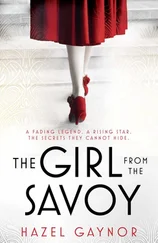Those were my thoughts. And while many disagreed with me, Polanski’s arrest and attempted extradition from Switzerland proved to be red meat for pundits and pontificators on both sides of the Atlantic.
For those who worshipped him as an artist… well, if Polanski wasn’t already revered enough in France, this arrest and attempt at extradition made him into a martyr. First, the Société des Auteurs et Compositeurs Dramatiques circulated a petition signed by more than one hundred people in the film industry, including Martin Scorsese, Pedro Almodóvar, and Woody Allen:
We have learned the astonishing news of Roman Polanski’s arrest by the Swiss police on September 26th, upon arrival in Zurich (Switzerland) while on his way to a film festival where he was due to receive an award for his career in filmmaking.
His arrest follows an American arrest warrant dating from 1978 against the filmmaker, in a case of morals.
Filmmakers in France, in Europe, in the United States and around the world are dismayed by this decision. It seems inadmissible to them that an international cultural event, paying homage to one of the greatest contemporary filmmakers, is used by the police to apprehend him.
By their extraterritorial nature, film festivals the world over have always permitted works to be shown and for filmmakers to present them freely and safely, even when certain States opposed this.
The arrest of Roman Polanski in a neutral country, where he assumed he could travel without hindrance, undermines this tradition: it opens the way for actions of which no one can know the effects.
Roman Polanski is a French citizen, a renowned and international artist now facing extradition. This extradition, if it takes place, will be heavy in consequences and will take away his freedom.
Filmmakers, actors, producers and technicians—everyone involved in international filmmaking—want him to know that he has their support and friendship.
On September 16th, 2009, Mr. Charles Rivkin, the US Ambassador to France, received French artists and intellectuals at the embassy. He presented to them the new Minister Counselor for Public Affairs at the embassy, Ms. Judith Baroody. In perfect French she lauded the Franco-American friendship and recommended the development of cultural relations between our two countries.
If only in the name of this friendship between our two countries, we demand the immediate release of Roman Polanski.
Two things stand out to me in this petition. One, that the only reference to Polanski’s crime is that it was “a case of morals.” A case of morals? Really? Then this important and self-important document stops to pay tribute to the American minister’s “perfect French.” If Polanski had raped me in perfect French, all this subsequent unpleasantness could have been avoided. Vive la France!
Bernard-Henri Lévy, the French writer and philosopher, started his own petition of famous well-wishers—everyone from Salman Rushdie and Jean-Luc Godard to Diane Von Furstenberg. The arrest was called a “judicial lynching” by a society of Polish filmmakers. Swiss editorial pages did a lot of breast-beating about how a “trap” had been laid for the director in their country. The French and Polish foreign ministers took their complaint to then secretary of state Hillary Clinton, and in an interview with a French radio state, Bernard Kouchner, the French foreign minister, said “This affair is frankly a bit sinister.” And Frédéric Mitterrand, the French culture minister, called the arrest “callous” and “absolutely horrifying.” (He had to back down a little after people remembered his 2005 memoir, where he’d written about his own passion for underage young boys he’d pay for sex while traveling in Thailand. Vive la France encore! )
There was equally strong reaction from those who wanted Polanski returned to the United States and were disgusted by the support he got from the intellectual elite. Katha Pollitt wrote an impassioned and widely read piece in the Nation.
It’s enraging that literary superstars who go on and on about human dignity, and human rights, and even women’s rights (at least when the women are Muslim) either don’t see what Polanski did as rape, or don’t care, because he is, after all, Polanski—an artist like themselves. That some of his defenders are women is particularly disappointing. Don’t they see how they are signing on to arguments that blame the victim, minimize rape, and bend over backwards to exonerate the perpetrator? Error of youth, might have mistaken her age, teen slut, stage mother—is that what we want people to think when middle-aged men prey on ninth-graders?
The observations weren’t all heavy stuff. In fact, while I recoiled from the serious commentary—hearing the details of the case repeated and exaggerated ad nauseam—I rather enjoyed the jokes, even when I was the butt of them. The funniest riff came from Chris Rock on Jay Leno’s show. “People are defending Roman Polanski because he made some good movies? Are you kidding me? He made good movies thirty years ago, Jay! Even Johnnie Cochran don’t have the nerve to go, ‘Well, did you see O. J. play against New England?’ ”
• • •
Throughout all this, I tried to keep my head down and stay away from all the press idiocy. It wasn’t always easy. For one thing, as I noted earlier, there were cameras set up outside my house. And not just cameras. My son Alex remembers reporters coming over to him and saying, “Listen, we’ll give you money to make a statement. Here’s twenty bucks if you just say, ‘No comment.’ ” At one point my sons started taking pictures of them. Once—that fateful day in September 2009, after Roman’s arrest—I gave photographers the finger. You don’t flip off paparazzi. But it was like my hand was possessed. I’m looking at my upright third digit going, You betrayed me, you York, Pennsylvania, fuck-you hand.
It was amazing what the press would do to try to get me to make news. One of the British tabloids called Larry and said they were willing to pay me “real money” for an interview: $75,000, $80,000. For me, that was more than a year’s salary, for one hour of my time. I needed the money. My kids needed the money. I thought to myself, If I can be paid to say what I’ve been trying to get across all this time, that would be great.
The tabloid writer called and called. Larry, as my attorney and spokesman, told him I was willing. Then this: “I just spoke to my editor in England,” the writer said to Larry. “If we’re paying that amount of money, she has to say she’s withdrawn her forgiveness for Polanski.”
First, I never used the word forgive publicly—what I did in my heart was a private matter. More important, while I struggled to understand and get past what happened, I was never so arrogant to suggest that I had the power to grant “forgiveness.” Forgiveness was for my peace of mind; it had little to do with him.
Gee, thanks but no thanks.
During the weeks and months after Polanski’s arrest in Switzerland, I once again felt joined to this man who was almost a stranger: in a sense, both Polanski and I were being held against our wills. It was hard not to think about him in jail. I would wake up in the morning free to do as I liked, while he was locked in a cell. I thought this is just all so wrong. I was actually relieved when he was released to “house arrest” in the chalet he owned in Switzerland.
While Larry worked behind the scenes to free me from this hell by bringing closure (which meant enabling Polanski to come back to the States without the threat of further incarceration), I had the pleasure of watching myself being excoriated in the press. Here was the problem: I wasn’t being a good victim. A good victim asks for help and cries on TV and parades around telling her story of woe for public consumption. We are told we are “helping others” by exposing ourselves in that way. The public appetite for other people’s misery demands it.
Читать дальше












